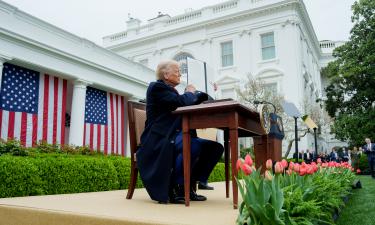South Korea's opposition party agrees to end boycott
South Korea's main opposition party on Monday agreed to end its seven-week boycott of parliament after the ruling party said it would hold talks on a new education law. The Grand National Party had boycotted the National Assembly since Dec. 9, when the ruling Uri Party pushed its education reform through parliament.
The opposition said the new law eroded the independence of management at private schools by requiring that some members of their boards of directors be elected from nominees recommended by faculty members and parents. The ruling party contended the law was necessary to curb corruption at private schools.
On Monday, the opposition agreed to restart normal parliament deliberations on Wednesday in exchange for a concession from the ruling party that it would consider revising the education law. Monday's agreement stemmed from a meeting between the floor leaders of the rival parties, the two sides said in a joint statement. The agreement came ahead of nationwide mayoral and gubernatorial elections scheduled for May.
Local media have said the GNP has been looking for a face-saving way back to parliament amid growing public discontent with its prolonged boycott of parliament.
Last month, the ruling party passed the country's budget bill and other key legislation, including a bill extending the country's troop dispatch to Iraq, without the presence of the main opposition party for the first time.
The GNP holds 127 seats and the Uri Party 144 seats in the 299-member, single-house National Assembly, reports the AP. I.L.
Subscribe to Pravda.Ru Telegram channel, Facebook, RSS!




